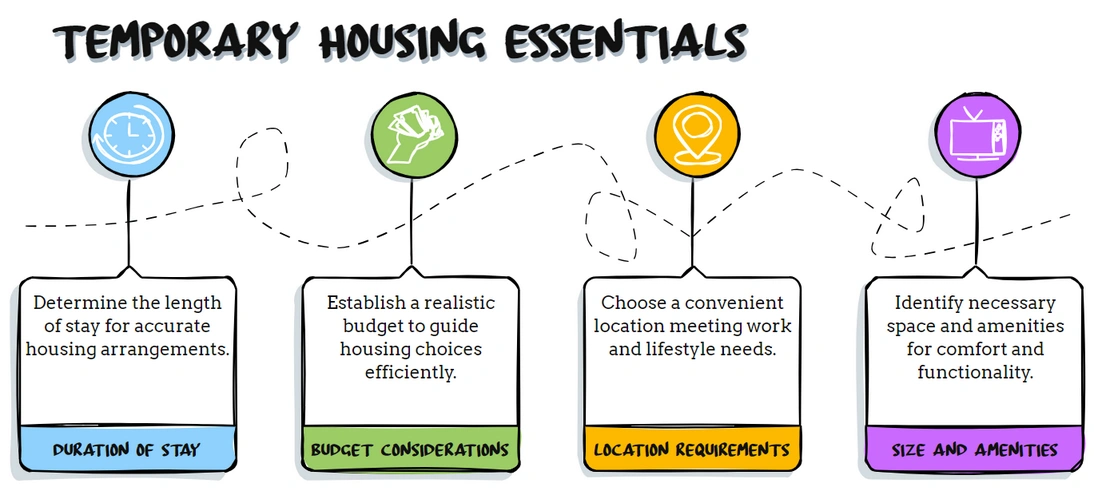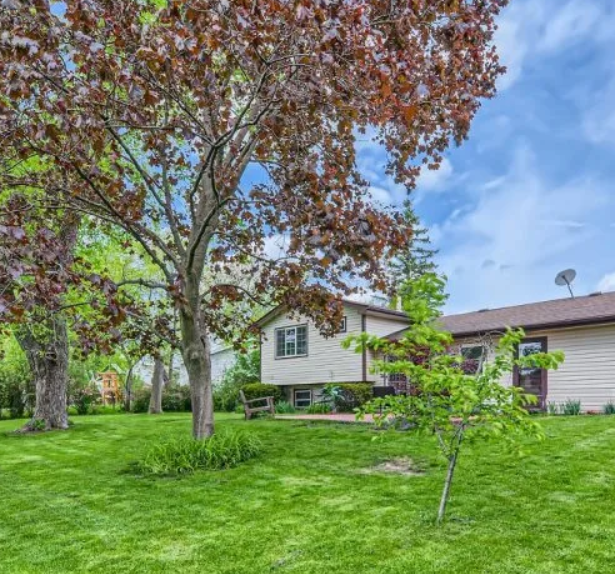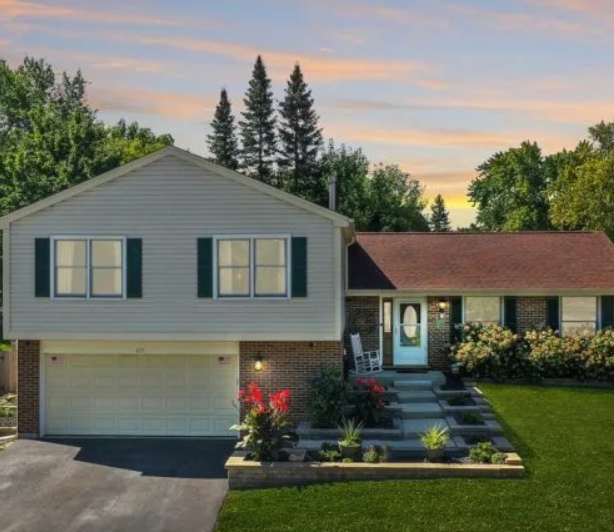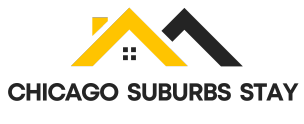Did you know the cost of temporary housing can change a lot? In 2025, the average daily rate (ADR) for corporate housing in the United States is approximately $107. This represents a slight increase from the 2023 average of $97 per day. When moving for work, renovating, or traveling, temporary housing is the solution you need.
There are different housing options. This includes short-term rentals, corporate housing, and extended-stay hotels.
When looking for temporary housing, think about what you need. Consider how long you’ll stay and your other requirements. This guide will help you find a great temporary housing solution.
Key Takeaways
- Corporate housing commonly averages $170 per night.
- Temporary housing options range from short-term rentals to extended-stay hotels and VRBO.
- Understand your needs, including budget and location, to select appropriate accommodations.
- Furnished rentals can reduce moving hassles, providing flexibility in your temporary housing solution.
- 80% of Airbnb guests leave reviews, helping you gauge the quality of potential rentals.
- Legal definitions of short-term rentals often classify stays of less than 30 consecutive days.
What Is Temporary Housing
Temporary housing is for short stays, usually under a year. It helps people in transition, families waiting for home fixes, or those moving for work. Knowing what temporary housing is helps you make better choices.
Many use Airbnb or corporate housing while waiting for their new homes. This is especially true during big life changes.
There are many types of temporary housing. For example, families hit by disasters might get help from FEMA. This aid can cover short-term stays and rental help for homes that are not safe.
Extended-stay hotels and vacation rentals are also big in temporary housing. Hotels offer deals for longer stays, perfect for those needing more than a few nights. Vacation rentals give more room and are often cheaper for families needing a place for a while. Prices vary by location and the time of year.
When you know about the different temporary housing options, you can find a place that meets your needs. Choices range from short-term to long-term, based on your budget and where you want to be.
Types of Temporary Housing Options
Temporary housing meets different needs, like business trips or moving. Knowing the options helps you choose what fits your lifestyle and budget. We’ll look at short-term rentals, corporate housing, and extended-stay hotels.
Short-Term Rentals
Short-term rentals are popular on sites like Airbnb and VRBO. They offer everything from shared rooms to whole homes. Prices start around $90 to $150 per night. Consider things like privacy, location, and amenities.
- Privacy and personal space
- Location options that may better reflect your needs
- Full access to amenities that may not be available in traditional hotel accommodations
Corporate Housing
Corporate housing is perfect for business travelers or families moving. It comes with essentials like internet and kitchen facilities. Prices are about $150 per night. It’s great for many people, not just executives.
- Home-like comfort during an extended stay
- Flexibility with short-term leasing arrangements
- Catering to families and individuals alike
Extended-Stay Hotels
Extended-stay hotels are for long stays, weeks or months. They have kitchenettes and laundry, making them comfortable. Prices vary from $40 to $150 per night. They’re good for long stays because they’re affordable and offer hotel perks.
- Cost-effectiveness for long-term housing needs
- Access to hotel amenities often designed for extended living
- Discounted rates for longer stays, making it budget-friendly
Vacation Rentals
Vacation rentals are great for a home-like feel during a short stay. Sites like Airbnb and VRBO have many properties, from cozy cottages to fancy villas. You can pick one that fits your style.
- Enjoy amenities like full kitchens, outdoor spaces, and local decor for a more comfortable stay.
- Vacation rentals can be a budget-friendly option for families or groups.
- Be aware of extra costs, such as cleaning fees, which can increase the total price.
Sublets
Sublet housing is another option for temporary housing. It lets you rent a furnished apartment from someone who already lives there. This is good for those who need to move quickly. But, there are risks like legal issues and needing landlord approval. Research well before moving in. Make sure you understand the agreement about utilities, maintenance, and how long you can stay.
- Often come fully furnished with essential furniture and appliances.
- May include utilities like electricity, water, and internet, but always confirm with the tenant.
- Some sublets provide household essentials like cookware, linens, and cleaning supplies.
| Housing Type | Description | Price Range | Key Benefits |
| Short-Term Rentals | Available on platforms like Airbnb and VRBO. Offers shared rooms to entire homes. | $90 to $150 per night | – Privacy and space – Flexible location – Access to amenities |
| Corporate Housing | Ideal for business travelers or families moving. Comes with essentials like internet and kitchen facilities. | About $150 per night | – Home-like comfort – Short-term leases – Family-friendly |
| Extended-Stay Hotels | Designed for long stays with kitchenettes and laundry. | $40 to $150 per night | – Cost-effective – Hotel amenities – Discounts for longer stays |
| Vacation Rentals | Home-like feel with properties available on Airbnb or VRBO. | Varies | – Full kitchens – Budget-friendly for groups – Local decor |
| Sublets | Rent a furnished apartment from someone else. Ideal for those moving quickly. | Varies | – Fully furnished – Includes utilities – Some provide household essentials |
Understanding Your Temporary Housing Needs
When planning for temporary housing, knowing what you need makes the transition smoother. The length of your stay and specific needs will help you choose the right place. This ensures your temporary home fits your lifestyle perfectly.
Duration of Stay
The length of your stay affects your housing options. Whether you’re waiting for a home sale, relocating, or doing renovations, you should know how long you’ll stay. Hotels for extended stays might be best for longer periods, while vacation rentals work for shorter times.
Budget Considerations
Setting a budget for temporary housing is vital for keeping your finances in check. The cost can range from $1,500 to $3,000 a month, depending on where it is and what it offers. Don’t forget to include extra costs like utilities, internet, and security deposits in your budget.
With a solid budget, you can look at options without spending more than you can afford.
Location Requirements
The convenience and comfort of your temporary housing greatly depend on its location. Choose a spot that’s close to work, public transport, and important services. Look into neighborhoods to find a place that’s affordable yet convenient, making your stay easier.
Size and Amenities
Think about the size of your temporary housing. Decide if you need a small studio or a bigger place with more rooms. Also, consider the amenities, like laundry, kitchenettes, or shared spaces, to see if they meet your daily needs.

Legal Considerations and Rights
It’s vital to know your temporary housing legal rights if you’re renting short-term. Laws differ by state and city, so check local rules. Knowing your rights helps you deal with landlords or property managers better. Important things include understanding your lease agreement, knowing about security deposits, and knowing how to end your lease.
Many renters don’t realize the importance of their rights, like having a safe place to live. Your rights include protection from unfair treatment and rules for upkeep and repairs. Not knowing your rights can cause problems, especially with hidden lease clauses. About 45% of renters face these issues.
Talking to legal experts can clear up what laws apply to your temporary rental. They can help you follow the rules and understand legal issues. Being open with your landlord about any questions can avoid misunderstandings.
| Legal Aspect | Description | Importance |
| Lease Agreement | Document outlining rental terms, tenant obligations, and landlord duties. | Essential for understanding your rights and responsibilities. |
| Security Deposits | Money held by the landlord to cover damages or unpaid rent. | Know the conditions for refund and deductions. |
| Habitability Rights | Right to a dwelling that meets health and safety standards. | Protects you from hazardous living conditions. |
| Dispute Resolution | Processes for handling disagreements with landlords. | Ensures issues are addressed fairly and legally. |
Where to Find Temporary Housing Options
Finding the right temporary housing can be tough but rewarding. There are many ways to find a rental that fits your needs. Online platforms and community resources can help a lot.
Online Rental Platforms
Many websites are designed for temporary housing. Sites like Airbnb and VRBO have lots of short-term rentals. You can search by amenities, price, and features.
Some sites are great for furnished rentals for visiting scholars. Others offer flexibility for different lengths of stay.
Social Media and Forums
Facebook and other social media can help find rentals. Community groups often post about rentals not found online. Housing forums also offer advice from people who have rented before.
These platforms help build a community. People share their experiences and tips.
Real Estate Agencies
Real estate agents can make finding temporary housing easier. They know the market well and have access to exclusive listings. Their services might cost money, but it can save time and effort.
They can give advice tailored to your needs. This ensures you find the best place for your situation.
How to Evaluate the Temporary Housing Options
When looking at temporary housing, a clear plan helps you find the right place. Look at different parts of each rental to make a smart choice. First, think about the cost, including rent and extra fees. This way, you can pick something that fits your budget.
Evaluate the Overall Cost
Get the full picture of temporary housing costs. Look out for hidden fees like cleaning or deposits. A detailed cost check helps avoid surprise expenses during your stay.
Check Reviews and Reputation
Reading reviews online can give you important info about rentals. Good or bad experiences from others can guide your choice. Taking time to review options helps you pick reliable places that meet your needs.
Review Lease Terms Carefully
Always read the lease agreement carefully before signing. Pay attention to notice periods and renewal rules to avoid surprises. Knowing these details helps you feel secure as you make your decision.
Inspect the Property in Person
If you can, see the property in person, so you can check if it matches the online pictures. Seeing the place yourself helps avoid disappointment when you move in.

Tips for a Hassle-Free Temporary Housing Stay
Finding the right temporary housing can make your stay better. A few strategies can make it enjoyable and stress-free.
Pay Attention to the Details
You should know what your rental agreement includes. Look at the small stuff like amenities and extra costs, like parking. Many rentals come with everything you need, making moving easier.
Confirming all details helps avoid surprise charges. It also ensures you have a comfortable place to live.
Maintain Clear and Open Communication
Have a good communication with the landlords. Building a good relationship can help if problems come up. Talking openly with your landlord can manage expectations for both of you.
Keeping them updated on any changes or concerns can prevent misunderstandings. This helps keep things smooth.
Set Realistic Expectations
See your temporary housing as just that. Whether you’re moving for work or school, it’s not forever. Setting realistic expectations can help you adjust to any lifestyle changes.
Being ready to adapt to your new place helps you make the most of your temporary home.
Stay Flexible and Open-Minded
Be flexible when living temporarily. Keep an open mind to different housing options. Being adaptable can lead to new opportunities.
The goal is to have a positive experience that fits your needs, even if it’s just for a short time.
Temporary Housing Options in the Chicago Suburbs
Finding the right temporary housing in the Chicago suburbs can really help during your transition. The area is known for its wide range of rental options. These properties meet different needs and budgets.
Below are two addresses that offer great short-term furnished rentals. They come with all the essentials for a comfortable stay.
1. 375 Pebblecreek Dr, Lake Zurich IL 60047

This 3-bedroom, 2-bathroom home offers a comfortable and practical living space for those in need of short- or mid-term housing in Lake Zurich. The home is fully furnished, with a blend of modern design and cozy touches to make you feel at home. High-speed internet is included, making it easy to stay connected whether you’re working remotely or relaxing.
The property includes a spacious yard, providing a peaceful area for outdoor activities or simply unwinding. Utilities are covered in the rental price, and flexible lease terms are available to accommodate your schedule.
Property Features:
- 3 Bedrooms, 2 Bathrooms
- Fully Furnished
- High-Speed Internet Included
- Spacious Yard
- Utilities Included
- Flexible Lease Terms
Additional Amenities:
- Air Conditioning
- Swimming Pool
- Gym
- Local Park Nearby
- Sauna
- Apple TV
- Wireless Internet
Additional Information:
- 250m² of Living Space
- 3 Floors, 4m Ceiling Height
- 2-Car Parking Spaces
- Free Zone Electricity (2,500 W)
2. 975 Old Mill Grove Rd, Lake Zurich, IL 60047

This spacious 4-bedroom, 3-bathroom home offers plenty of room for families, corporate professionals, or anyone in need of a transitional space. Spread across four levels, the home provides flexibility with both furnished and unfurnished options, allowing you to personalize the space to your preference. Whether you bring your own furnishings or move in with everything set up, it’s designed to accommodate your needs.
Ideal for ALE (Additional Living Expense) insurance claims, corporate stays, or families in transition, this home comes with essential amenities like in-unit laundry, utilities included, and pet-friendly options. It’s a comfortable and convenient living space for everyone, including your pets.
Property Features:
- 4 Bedrooms, 3 Bathrooms
- Furnished or Unfurnished Options
- In-Unit Laundry
- Pet-Friendly
- Utilities Included
- Flexible Lease Terms
Additional Amenities:
- Air Conditioning
- Swimming Pool
- Gym
- Local Park Nearby
- Sauna
- Apple TV
- Wireless Internet
Additional Information:
- 250m² of Living Space
- 3 Floors, 4m Ceiling Height
- 2-Car Parking Spaces
- Free Zone Electricity (2,500 W)
Conclusion
Understanding your temporary housing needs will help you find the right options. This summary highlights the need for thorough research and planning. It makes moving between homes easier.
Whether you’re moving for work, personal reasons, or insurance needs, knowing what to look for helps. It lets you make choices that fit your situation.
When thinking about housing options, remember the variety available. This includes corporate housing and vacation rentals. With over 4 million hotel rooms and more long-term options, finding a place is easier than ever.
Proactive research can make your housing transitions smoother. It helps fill any gaps during your move.
The demand for temporary housing is growing, thanks to more people working remotely. This presents both challenges and opportunities. Carefully evaluate your options to find a comfortable and effective temporary home.
FAQs
How long can I stay in temporary housing?
The length of stay varies depending on the type of housing. Short-term rentals like Airbnb may allow stays from a few days to several months, while corporate housing and extended-stay hotels often offer month-to-month leasing. Some options, like sublets, can last up to a year. Always check with the provider for specific terms.
Are temporary housing costs covered by insurance?
In some cases, yes. If you’re displaced due to a natural disaster, fire, or home repairs, your homeowner’s or renter’s insurance may cover temporary housing costs under “loss of use” coverage. If relocating for work, your employer may provide a housing stipend or reimbursement.
Can I bring my pet to temporary housing?
Many temporary housing options allow pets, but policies vary. Some places charge additional pet fees or require deposits, while others may have breed or size restrictions. Always check pet policies before booking.
What’s the difference between corporate housing and an extended-stay hotel?
Corporate housing typically refers to fully furnished apartments or homes available for extended stays (30+ days), offering a home-like experience. Extended-stay hotels, on the other hand, provide hotel-like amenities (housekeeping, front desk service) and shorter lease flexibility.
Can I negotiate the rent for temporary housing?
Yes! Many landlords and property managers are open to negotiation, especially for longer stays. If you’re booking an Airbnb for a month or more, ask for a discount. Corporate housing providers and private landlords may also offer lower rates for extended leases.

